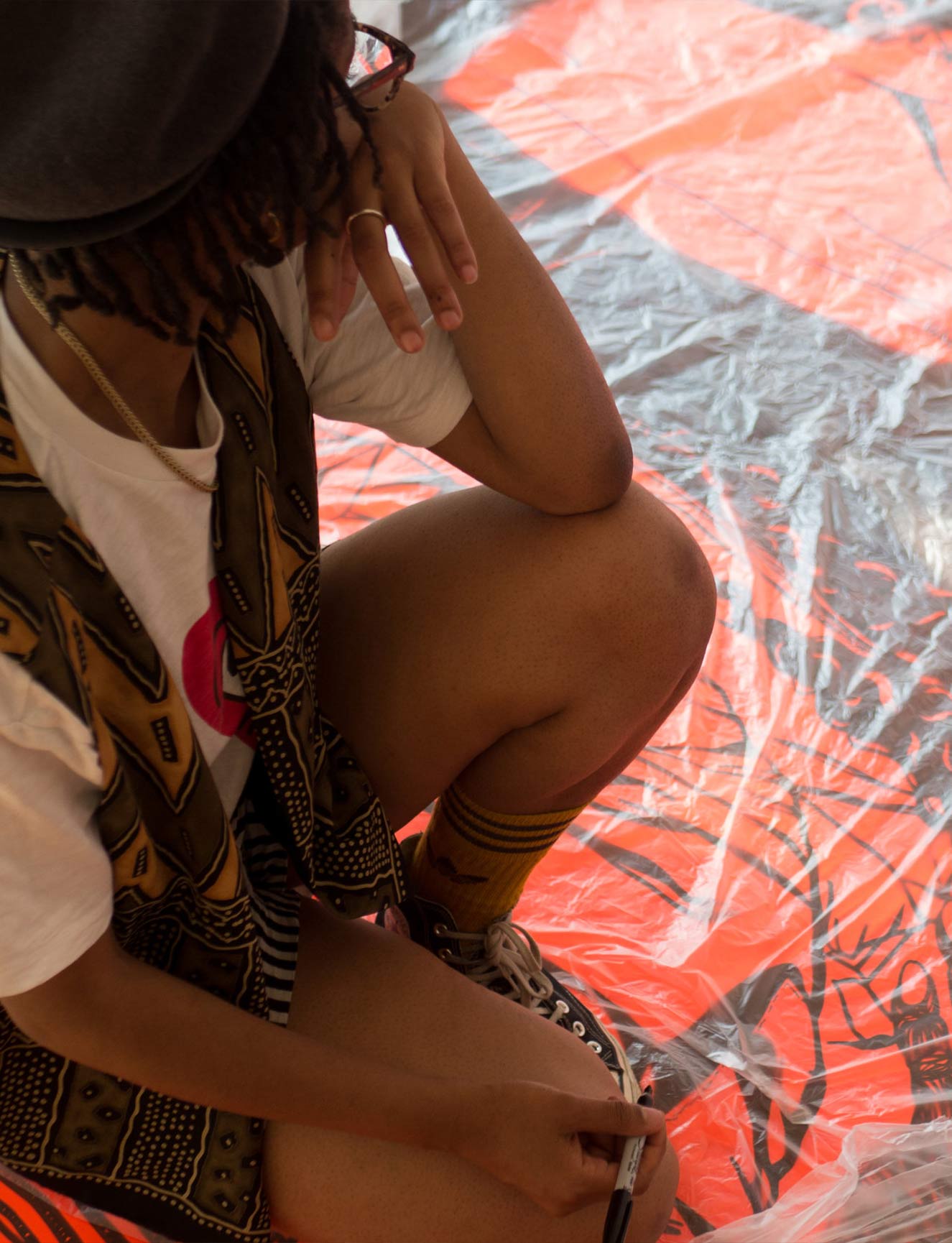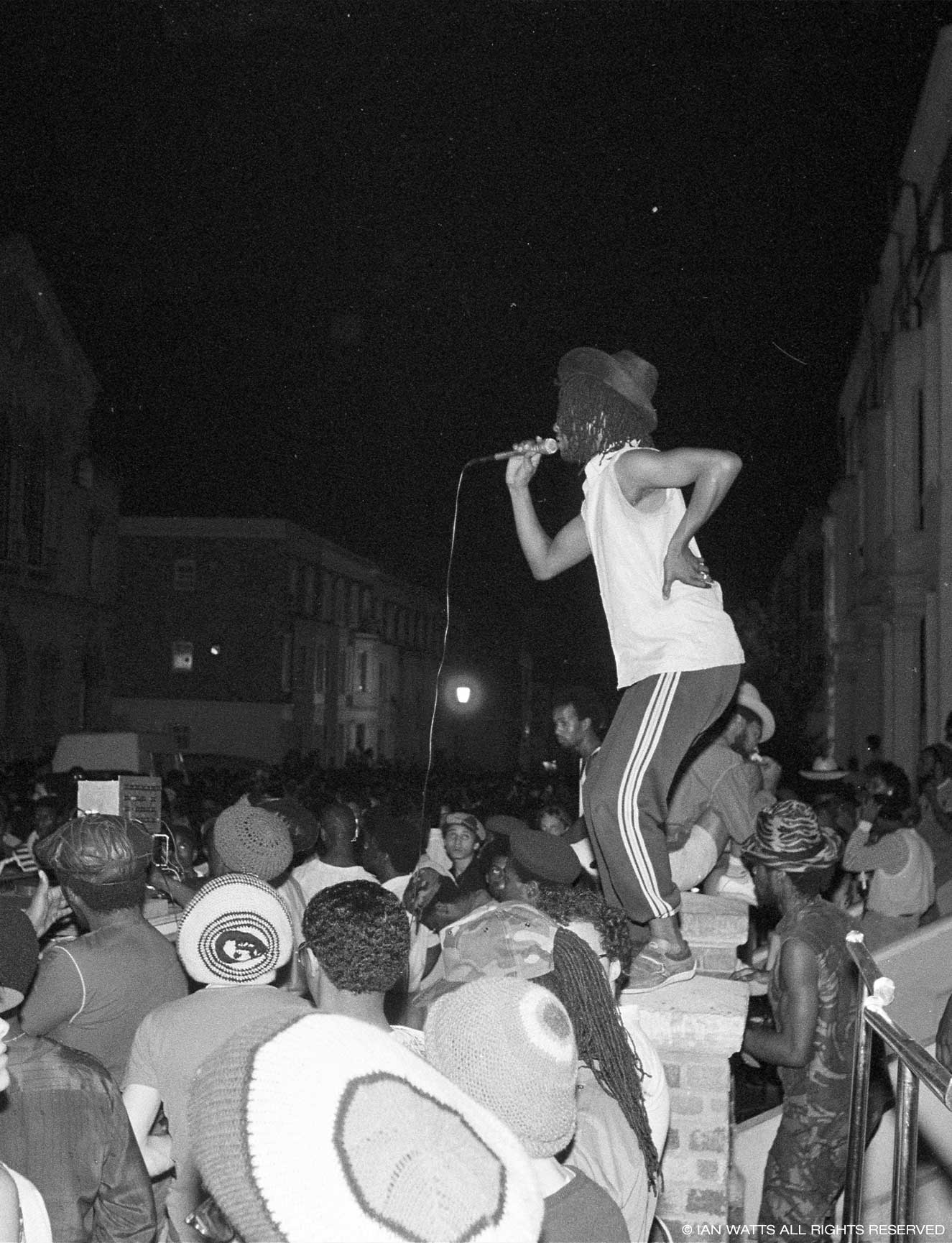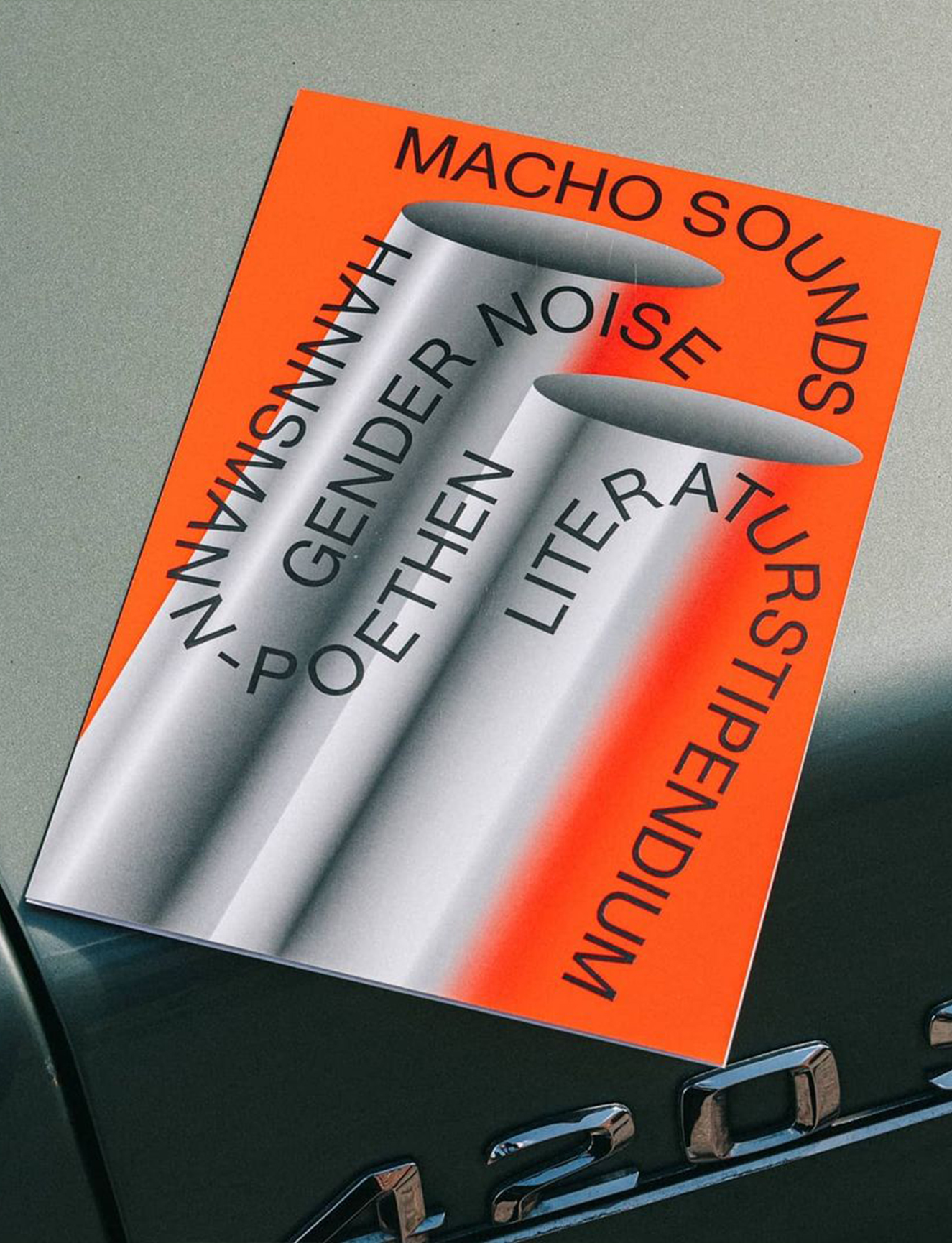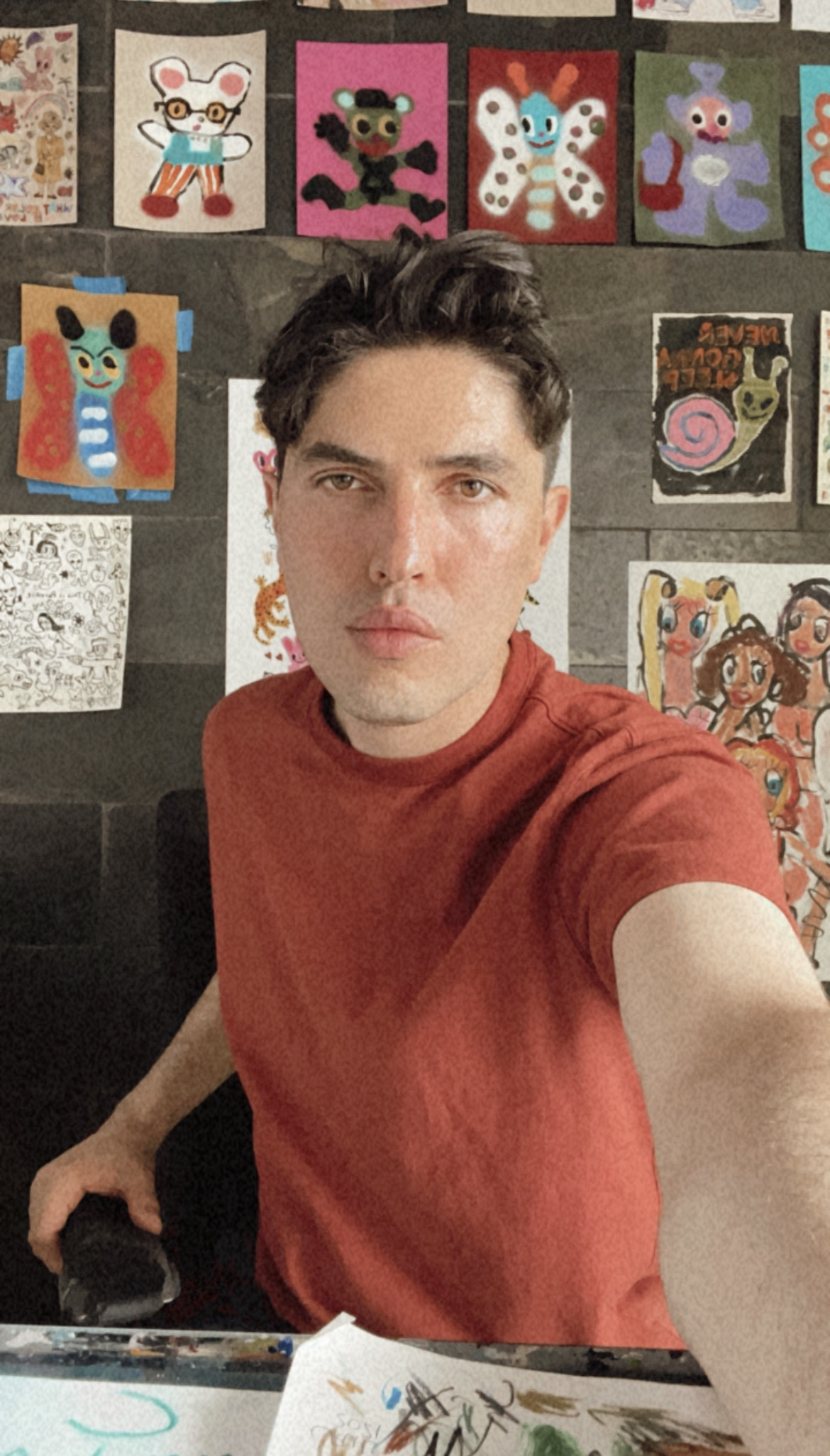Help! Where do I even start?
Start by researching, making and testing. Go to galleries, watch talks, buy books and talk to people. Find out what materials work best for you, and think broadly about things like what size you are most comfortable working at, and how long on average it takes you to get from ideation to creation.
Test your work by sharing it with close ones and asking for feedback to see how they respond, that could even be family members who would say they aren’t the most creative. Then start sharing on your website or Insta!
How did you build the confidence to put yourself out there?
I built confidence by putting in the hours, doing the work and knowing that when I created something it was me trying my best. As long as I know that I’ve tried my best that’s what reassures me that it’s worth me putting myself out there and sharing my work.
How do you determine who your main audience are?
For me I realised my main audience are the people I document in my illustrations.
Build confidence by putting in the hours
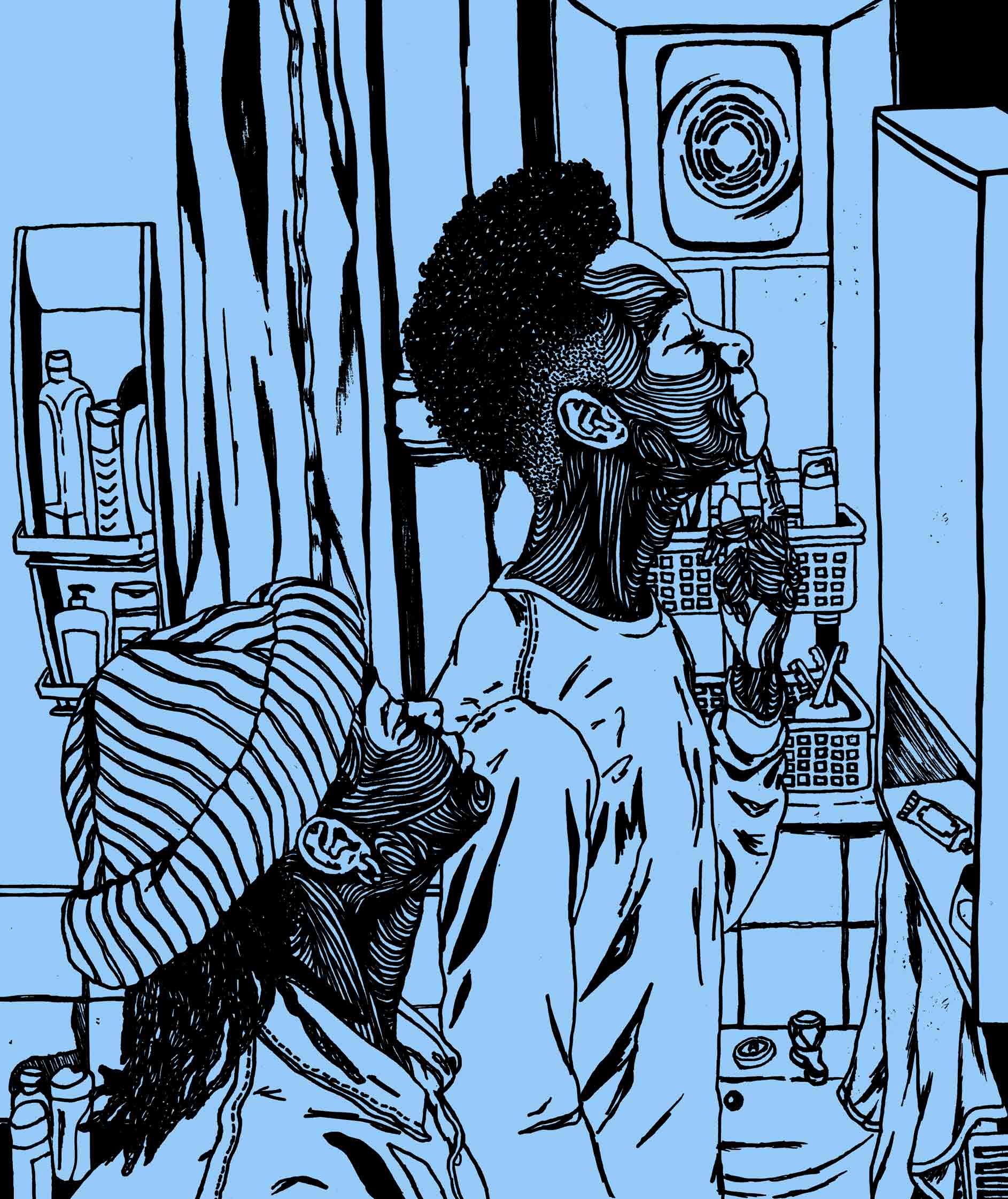
How do you decide which of your work you want to ‘sell’ versus which is personal?
This is a really difficult one for me because all of my work feels personal, as I have been lucky to get commissions which align well with the sort of work I would be doing for myself anyway. But I guess this is where prints come in handy – letting go of originals is hard to do for me at the moment.
How do you work out how to set rates and what to charge for your work?
It took me a while to figure out how to set rates for my work because it’s not something really covered on art courses at university. One of the most useful things I did was to reach out to friends and peers who are doing similar things to me, but have been working as freelancers for longer, and find out what their tips were.
How do you go about partnering with other brands or creative industry peers?
The most important thing I look for is a shared ethos: do I feel inspired by their previous work? After that it’s about our vibe: does conversation flow seamlessly? Do I feel at ease around them?
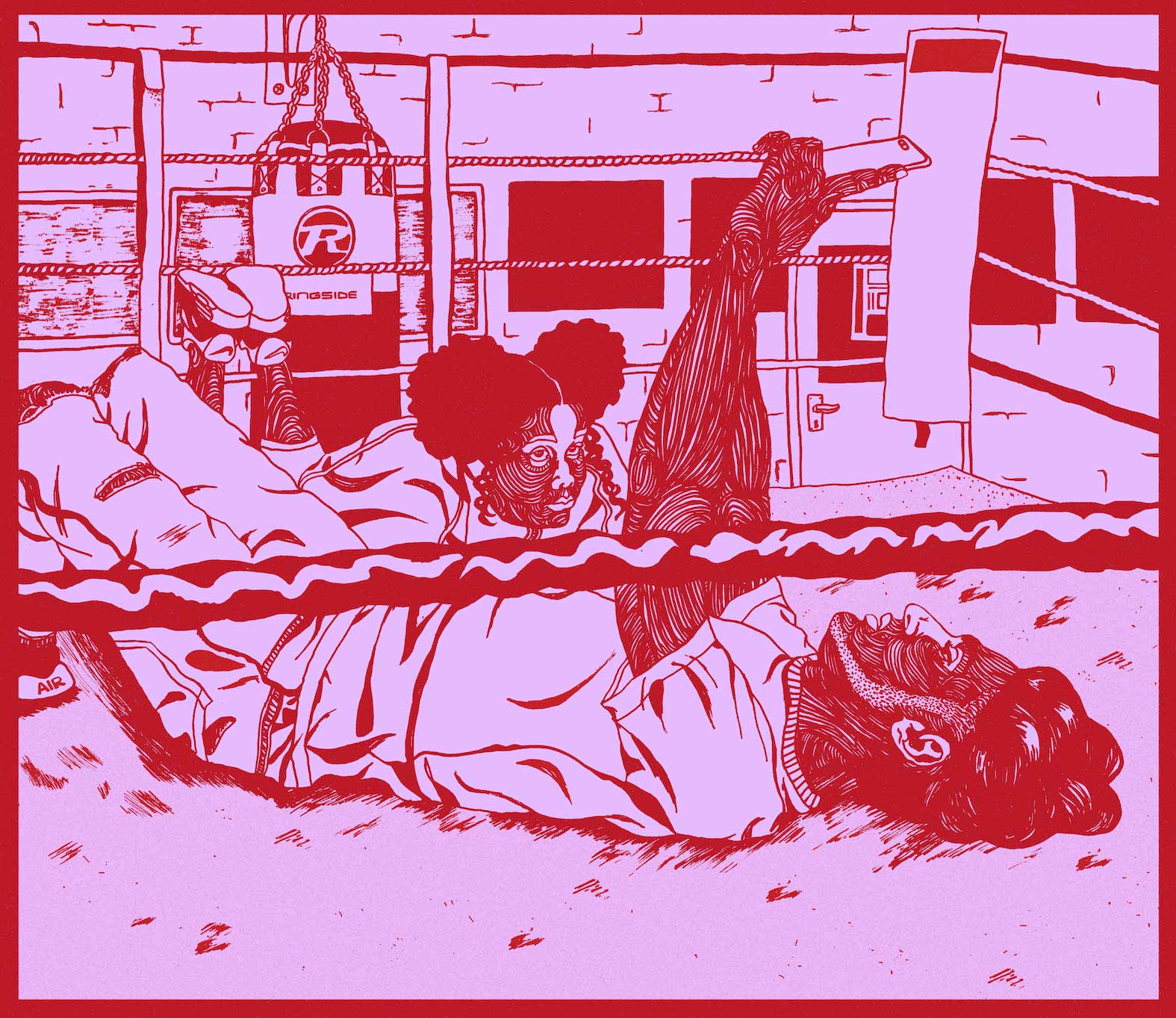
Don’t force it
How can someone prove they’re good at what they do if they don’t have formal training?
The proof is in the pudding, so I would say you just have to keep on making and making and making, until it becomes undeniable that you are good at what you do. Formal training is great, but equally if you are really passionate about something you can teach yourself how to do it.
Have you ever experienced burnout? How did you overcome it?
When I was in the last few weeks of completing my Masters I was pulling really late nights and early mornings, and the resulting burnout actually stayed with me for about two months. When the deadlines are coming fast and it’s all high stakes you do somehow find the energy from nowhere. I would say I overcame that burnout by just being kind to myself, thinking about whether I really wanted to do certain commissions and making time to just draw for pleasure. Eating well is a key way to recover from burnout too!
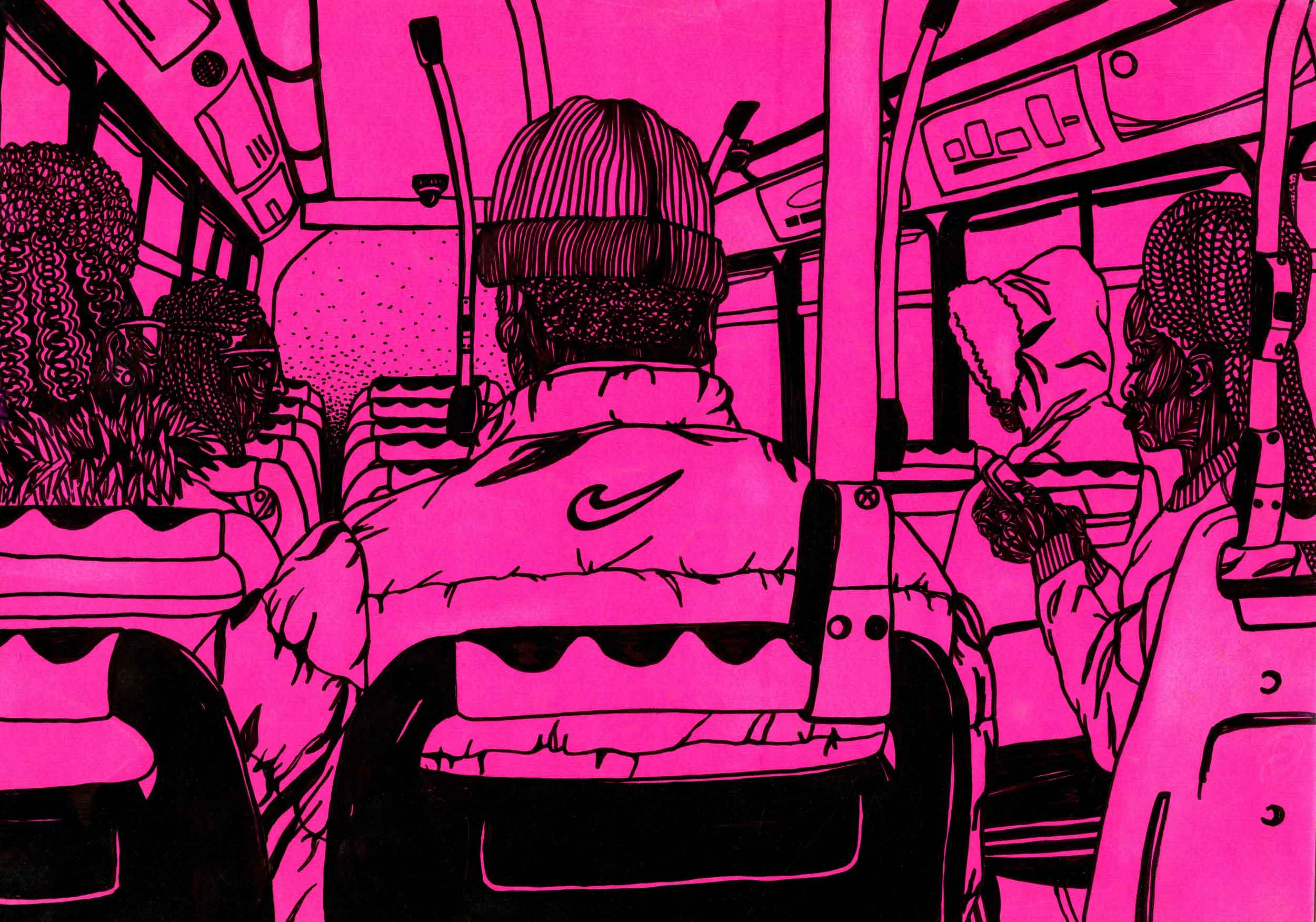
How do you bounce back from situations that don’t work out? How do you know when to stop when to keep trying?
When a situation doesn’t work out, I give myself a little bit of time to be a bit sad about it and then think, “OK, I didn’t foresee that opportunity coming my way so let me trust that another one will come along that’s better suited to me.” I think it’s always important to remember that thing we have all said to ourselves or a friend at some point: “Don’t force it.” Instead, channel your energy into something else.
What was the transition like to becoming a freelancer? What tips would you have, if any, for transitioning successfully?
- Build a community of people around you who are in a similar boat and be supportive of them
- Don’t be embarrassed to ask for help
- Time management skills are key
- Don’t overstretch yourself, give yourself breaks. Don’t work every weekend and bank holiday
Feedback is everything
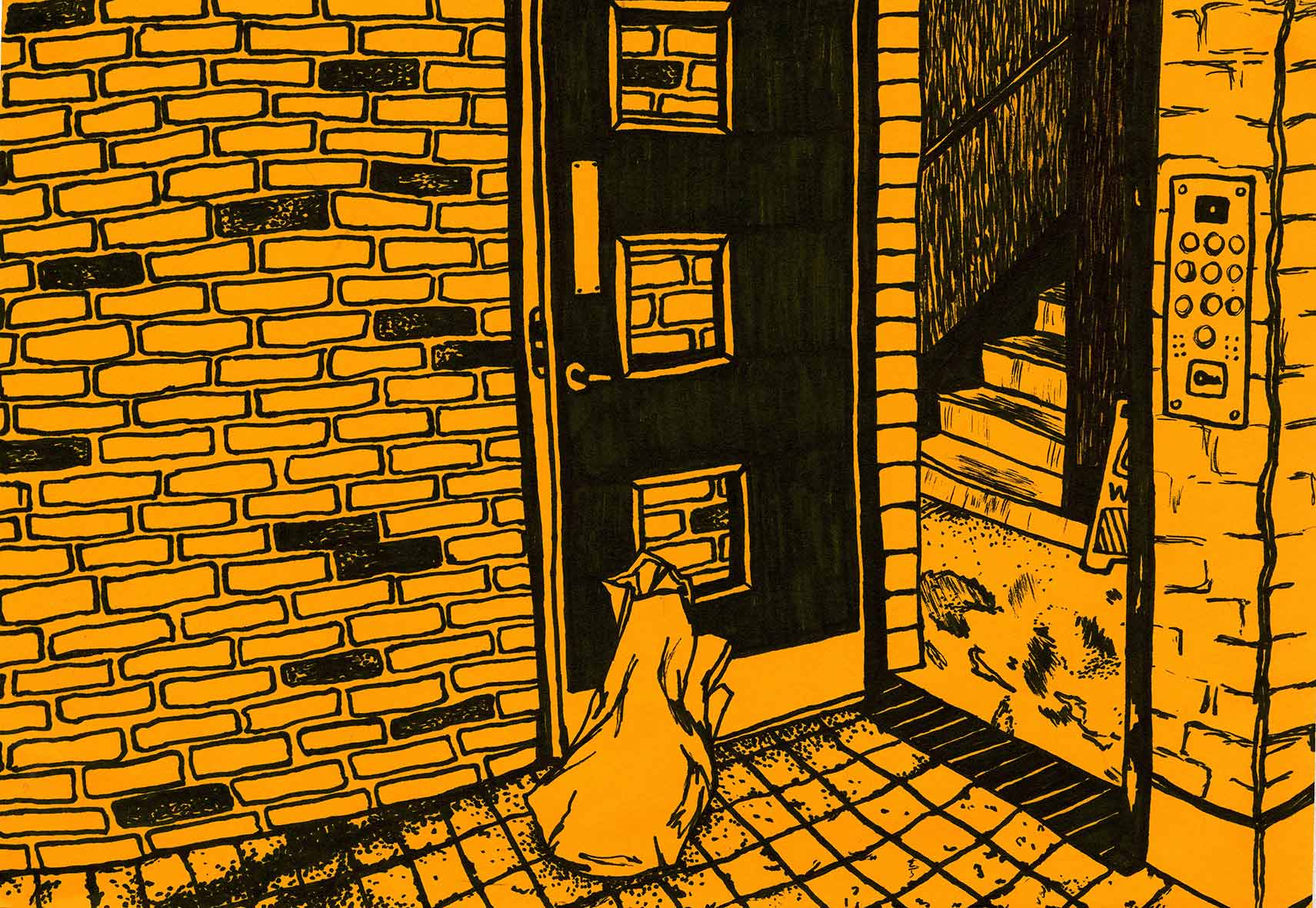
Do you have a mentor?
I don’t actually have a mentor but I have a group of peers who are like a sounding board for me, which I really value. I do think it’s important to not work in isolation. Feedback is everything, it helps us look at our work in ways we didn’t expect. To make the most of peer relationships it’s about being ok with being vulnerable and being open to listening.
How do you decide how much self promotion to do on social media? What tips do you have for using social media well?
I actually find this difficult, perhaps because of my personality. Now I just make sure I upload something at least once every three weeks, and I try to show my whole person too; the art and the person behind the art.
Read More: Understanding Your Worth With Gabriel Garble.



